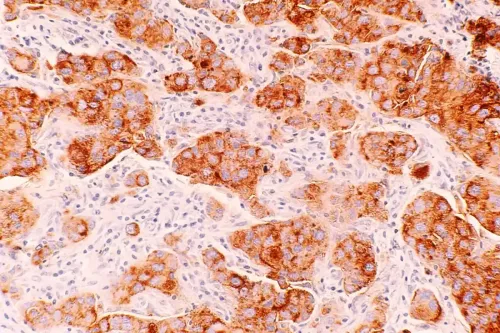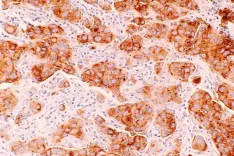
THE GROWING IMPORTANCE OF LONG COVID IN HEALTHCARE
────────────────────────────────────────
WHAT IS LONG COVID AND WHY IT MATTERS
────────────────────────────────────────
Since the start of the COVID 19 pandemic, the focus has largely been on acute infection and vaccination. However, as millions recover from initial illness, many continue to experience lingering health complications known as long Covid. This condition involves persistent symptoms such as fatigue, cognitive difficulties and respiratory problems that last months beyond initial recovery.
Long Covid, also known as post acute sequelae of SARS CoV 2 infection, PASC, is now recognized as a major healthcare issue. While diagnostic criteria continue to evolve, its impact on patients and health systems is undeniable.
COMMON SYMPTOMS AND CHALLENGES
Symptoms of long Covid vary widely and may include:
• Severe fatigue and exhaustion
• Cognitive impairment or “brain fog”
• Shortness of breath and cardiovascular issues
• Joint and muscle pain
• Sleep disturbances
• Anxiety and depression
These symptoms can fluctuate and significantly impair daily functioning, requiring multidisciplinary care.
THE SCALE OF THE CHALLENGE
Research suggests that 10 to 30 percent of people who contract COVID 19 experience long term symptoms. Given the scale of global infection, tens of millions now require ongoing support. This demand highlights the urgent need for dedicated research and adapted healthcare models.
────────────────────────────────────────
HOW LONG COVID RESEARCH IS TRANSFORMING CLINICAL TRIALS
────────────────────────────────────────
A surge in clinical trials focused on long Covid is reshaping approaches to chronic illness research. Scientists are studying causes, treatment options and long term effects, generating insights that could transform future care.
INNOVATIVE TRIAL DESIGNS AND TECHNOLOGIES
Modern long Covid research uses advanced and patient centric methodologies, including:
• Digital health tools for remote and real time symptom tracking
• Adaptive trial designs that adjust based on patient response
• Inclusion of diverse populations to address healthcare disparities
• Cross sector collaboration to accelerate data sharing
These innovations are setting a new standard for clinical trials in complex chronic conditions.
PROMISING AREAS OF STUDY
Several current trials stand out:
• Anti inflammatory treatments targeting neurological symptoms
• Rehabilitation programs combining physical therapy and mental health support
• Antiviral therapies aimed at addressing persistent viral fragments
These research initiatives aim to deliver evidence based treatments ready for integration into standard care pathways by 2025.
────────────────────────────────────────
THE BROADER IMPACT OF LONG COVID RESEARCH ON HEALTHCARE
────────────────────────────────────────
Insights from long Covid research are influencing approaches to multiple chronic conditions and reshaping healthcare delivery models.
ADVANCING KNOWLEDGE OF POST VIRAL SYNDROMES
Long Covid is providing new understanding of post viral syndromes that have historically lacked scientific clarity, such as chronic fatigue syndrome, ME CFS. By studying long Covid mechanisms, researchers hope to uncover effective treatments for related disorders.
HOLISTIC AND INTEGRATED CARE MODELS
Healthcare systems are evolving to address the multifaceted needs of long Covid patients. This shift accelerates the adoption of integrated care models that:
• Coordinate multidisciplinary specialists
• Emphasize personalized treatment plans
• Use telemedicine and remote monitoring for continuity of care
• Support mental health alongside physical rehabilitation
These care frameworks are expected to become standard practice for chronic disease management.
────────────────────────────────────────
TECHNOLOGICAL PROGRESS DRIVING LONG COVID RESEARCH
────────────────────────────────────────
Technology plays a crucial role in expanding the scale and speed of research into long Covid.
ARTIFICIAL INTELLIGENCE AND DATA ANALYTICS
AI driven tools analyze extensive patient data from health records, wearables and lab samples to identify:
• Patterns that predict long Covid development
• Subtypes based on symptoms and biomarkers
• Personalised treatment responses
These insights improve diagnostic accuracy and treatment tailoring.
BIOMARKER DISCOVERY AND PRECISION MEDICINE
Researchers are identifying biomarkers that indicate long Covid presence or severity, including:
• Inflammatory indicators
• Immune system profiles
• Metabolic and genetic markers
Biomarker research enables a shift from symptom based diagnosis to precision medicine, offering targeted treatment plans.
────────────────────────────────────────
CHALLENGES AND FUTURE DIRECTIONS
────────────────────────────────────────
Despite significant progress, several challenges must be addressed.
COMPLEXITY OF SYMPTOMS
The variability and overlap of long Covid symptoms make diagnosis and research difficult. Standardised assessment frameworks are needed and require global alignment.
EQUITY AND ACCESS
Healthcare inequalities mean some populations face higher long Covid burden with fewer treatment options. Future research must prioritise inclusivity, representation and fair access to care.
NEED FOR SUSTAINED COLLABORATION
Long term funding and international collaboration are essential to sustain research momentum and translate findings into patient care.
────────────────────────────────────────
LONG COVID AND THE FUTURE OF HEALTHCARE
────────────────────────────────────────
Long Covid research is driving a transformation in how healthcare systems understand, diagnose and treat chronic conditions. Lessons learned are shaping new standards that are more patient focused, integrated and technology enabled.
By 2025, this research is expected to:
• Improve diagnostic precision for chronic and post viral conditions
• Expand accessible multidisciplinary care networks
• Advance personalised medicine using biomarkers and AI
• Strengthen public health strategies for long term recovery and rehabilitation
These shifts promise more responsive, effective and compassionate healthcare for millions worldwide.
────────────────────────────────────────
For more insights or collaboration opportunities, please visit https://www.patlynk.com











